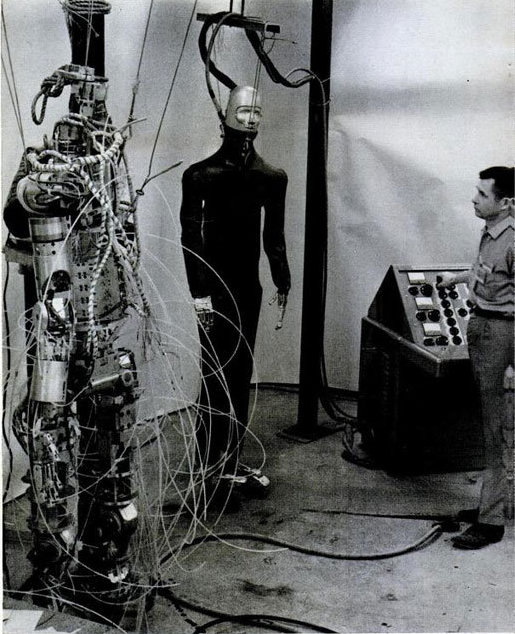I can agree with Christopher Mims in his latest WSJ column, “Why We Needn’t Fear the Machines,” that the existential threat of AI may be overstated for the foreseeable future, but I think he’s way too sanguine about the disruption to employment we’re experiencing at the granular level–and will continue to experience for decades. Sure, the human-machine hybrid will be very effective in workplaces as it is in chess, but there will only be a few kings and many pawns. (Actually, the pawns may be completely cleared from the board.) The more potent argument might be that technology will end up creating whole new industries we can’t yet envision, though I doubt that will make up for the shortfall, either. From Mims:
“Often, when pundits talk about the companies building the future, we talk about them as if the world they are creating is an inevitability. Whether it’s big data and artificial intelligence replacing knowledge workers or taxicab drivers giving way to Uber drivers and eventually self-driving cars, the sense is that with time, humans become progressively less necessary.
But I think Turing, widely considered the father of artificial intelligence, would see things differently. He invented the Turing test for determining if a machine was intelligent—you simply interview it and make up your mind for yourself. It’s a surprisingly nonalgorithmic process for determining the truth or falsity of a statement: ‘Is this thing like me?’
Our machines are not like us. We could make them like us if we want, says Prof. [S. Barry] Cooper, by putting them in mechanical bodies and raising them like children. But we already have a much more efficient way to create human-level intelligence, one that has proved robust even in the face of the titanic changes brought about by its own creations.
The future of technology isn’t about replacing humans with machines, says Prof. Cooper—it’s about figuring out the most productive way for the two to collaborate. In a real and inescapable way, our machines need us just as much as we need them.”

